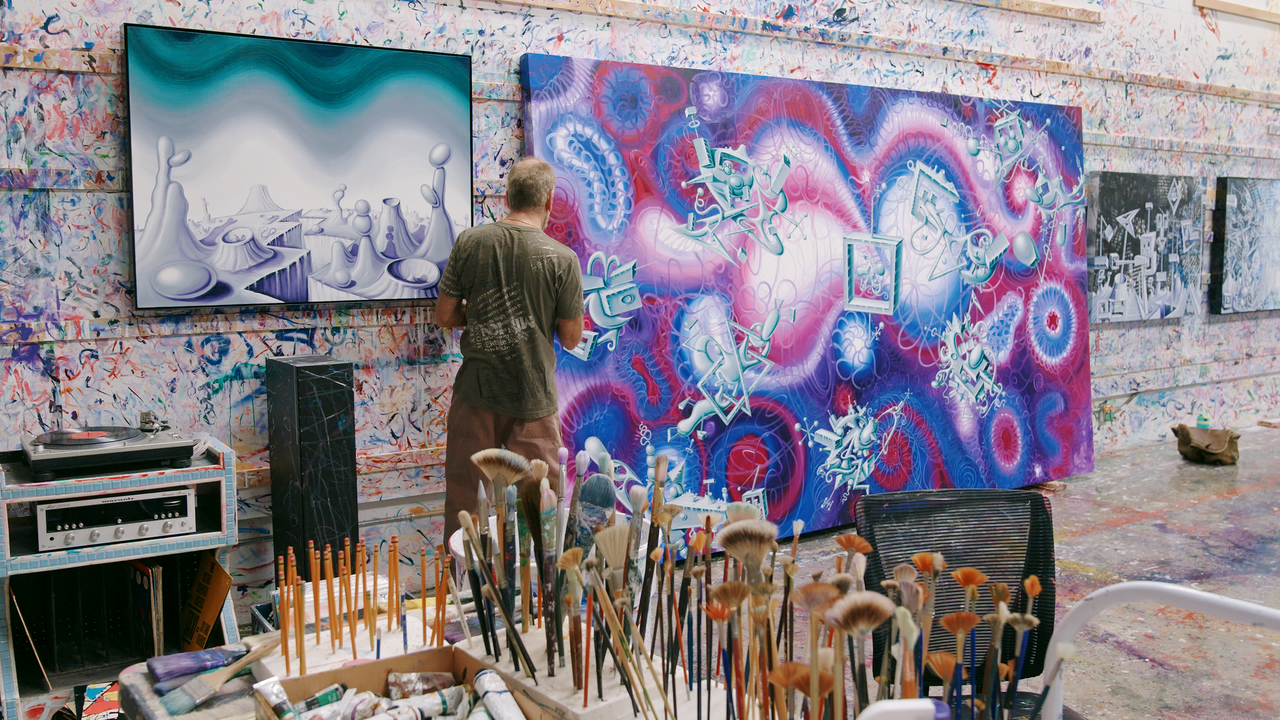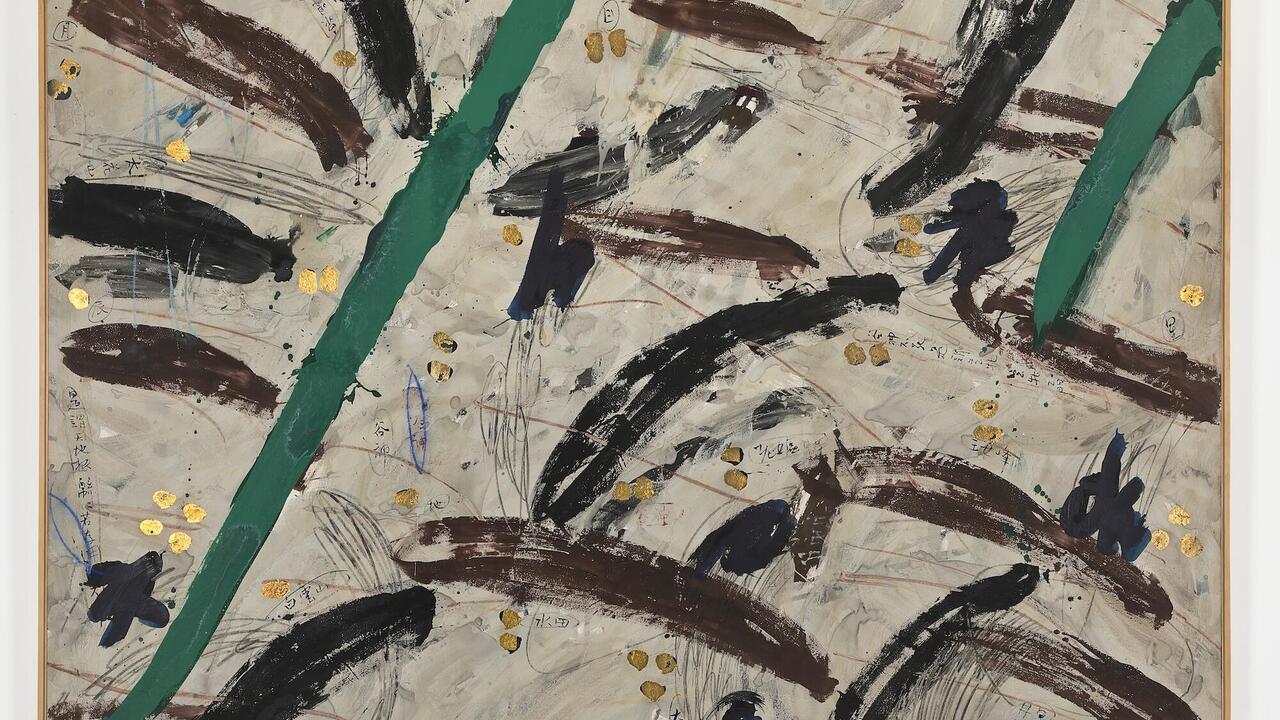Yoshua Okón

The term ‘banana republic’ emerged at the turn of the century, inspired by the countries of Honduras and Guatemala, whose governments fell in thrall to international corporations eager to export the newly popular fruit. Later, CIA-supported corporate interests violently divested rural Mayan populations of both land and livelihood, feeding into decades of poverty and unrest. One American corporation, the United Fruit Company, earned itself the nickname ‘El Pulpo’ (The Octopus) for its perfidious and far-reaching involvement in these nations’ economies. It was bitterly denounced by the Chilean poet Pablo Neruda in his 1950 poem ‘United Fruit Co.’, which evokes a comic opera of CIA-backed puppet governments, and a roster of colluding dictators: ‘When the trumpet blared everything / on earth was prepared / and Jehovah distributed the world / to Coca-Cola, Inc., Anaconda, / Ford Motors, and other entities: / United Fruit Co. Inc. / reserved itself the juiciest, / the central seaboard of my land, / America’s sweet waist.’
Yoshua Okón’s four-channel video installation Octopus (2011) – produced during a residency at the Hammer Museum – quietly invokes the recent history of these Central American banana republics while focusing on a group of Guatemalan Mayan men in Los Angeles today. The setting is the car park of Home Depot (‘California’s Home Improvement Warehouse’) in Cypress Park, a working-class neighbourhood largely populated by immigrants, where the video’s subjects spend most of their days waiting for employment as day labourers – as do countless other men at Home Depot lots across the city. Divided into two groups, they wordlessly play out short, scripted scenes that draw loosely on their experiences fighting as guerillas or in the military during the civil wars that raged in Guatemala between 1954 (when president Jacobo Árbenz Guzmán was deposed in a CIA-supported coup d’état) and 1996 (when the United Nations helped broker a peace agreement). The ‘action’ is low-key and verges on slow-motion, the sounds of the car park muted. Never clashing directly, the two camps scout out the terrain, perching on top of shopping trolleys and ‘holding’ mimed binoculars, shimmying out from underneath cars on their shoulder blades, and crouching behind potted plants, as cars and shoppers pass by. At one point, silently and cautiously, two men emerge from between a row of parked cars. Arms outstretched like mock-machine guns, they swivel slowly, surveying the terrain as they move across the asphalt no-man’s land toward the shelter of the next parked row. Five or six others appear behind them, dropping quickly to the ground and somersaulting to safety. A pick-up truck drives by with a sticker on its rear bumper: ‘Voter for a New Foreign Policy.’
The men’s strategic movements through the parking lot of Home Depot re-territorialize this supposedly Guatemalan history, as these former soldiers superimpose instances of the Guatemalan conflict on the topography of labour in LA. Octopus is thus also a revisionist move of significant local import, a playful but resolute intervention that cuts across anti-immigration rhetoric, counters stereotypes about the demographic make-up of immigrant populations in Southern California, and illuminates the historical circumstances that bring undocumented workers to sites like the Home Depot lot. The US is host to the largest Guatemalan diaspora in the world, and Okón’s investigation of these Guatemalan Mayans’ ‘marginal’ presence at the centre of a highly visible informal labour economy in LA resonates with earlier projects addressing the ways marginalized individuals or communities function within the mainstream. Similar questions shoot through Okón’s Southern California-based projects – such as Hipnostasis, a 2009 collaboration with Raymond Pettibon, featuring Venice Beach bums who have knocked about the LA beach for several decades, and White Russians (2008), a collaboration with residents of an isolated High Desert community – to sites slightly further afield, as in Tarzan (2003), about the 1970s Turkish movie star who played Tarzan and continues to be known as such on the streets of Istanbul today, or Bocanegra (2007), which records the activities of a group of neo-Nazis in Mexico City.
Although, in Okón’s words, the day workers in Octopus have moved out of a state of ‘invisibility’ to the position of ‘protagonists’, their new mode of occupying space does not appear to conflict dramatically with the ebb and flow of the parking lot (ironically, one of LA’s most pedestrianized zones). Octopus is not about breaking out, acting up, wreaking havoc. If anything, the actions of Okón’s protagonists appear of less consequence in the car park than in the museum, where, under the artist’s crisp editing, they take on the shape of an alternative form of history-writing. As distinct from the tradition of historical reenactment – whose replication of specific incidents secures the original event all the more firmly in the past – Okón’s two-track approach works against a vision of history as episodic, conclusive or even particularly past.
















